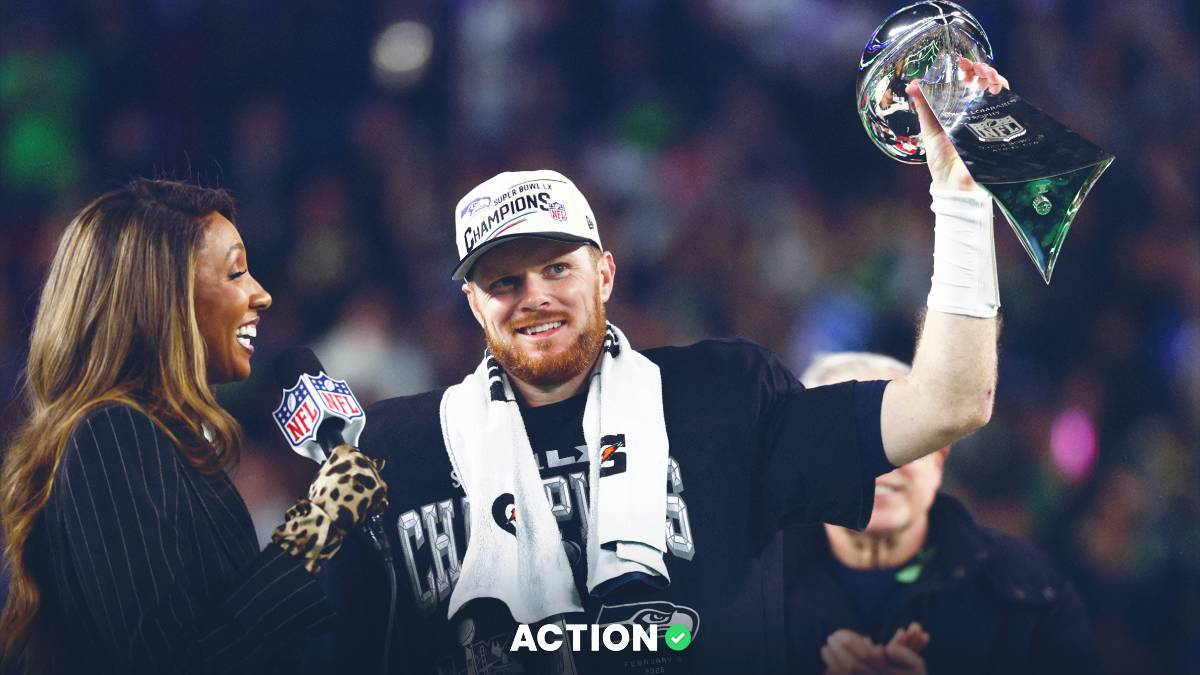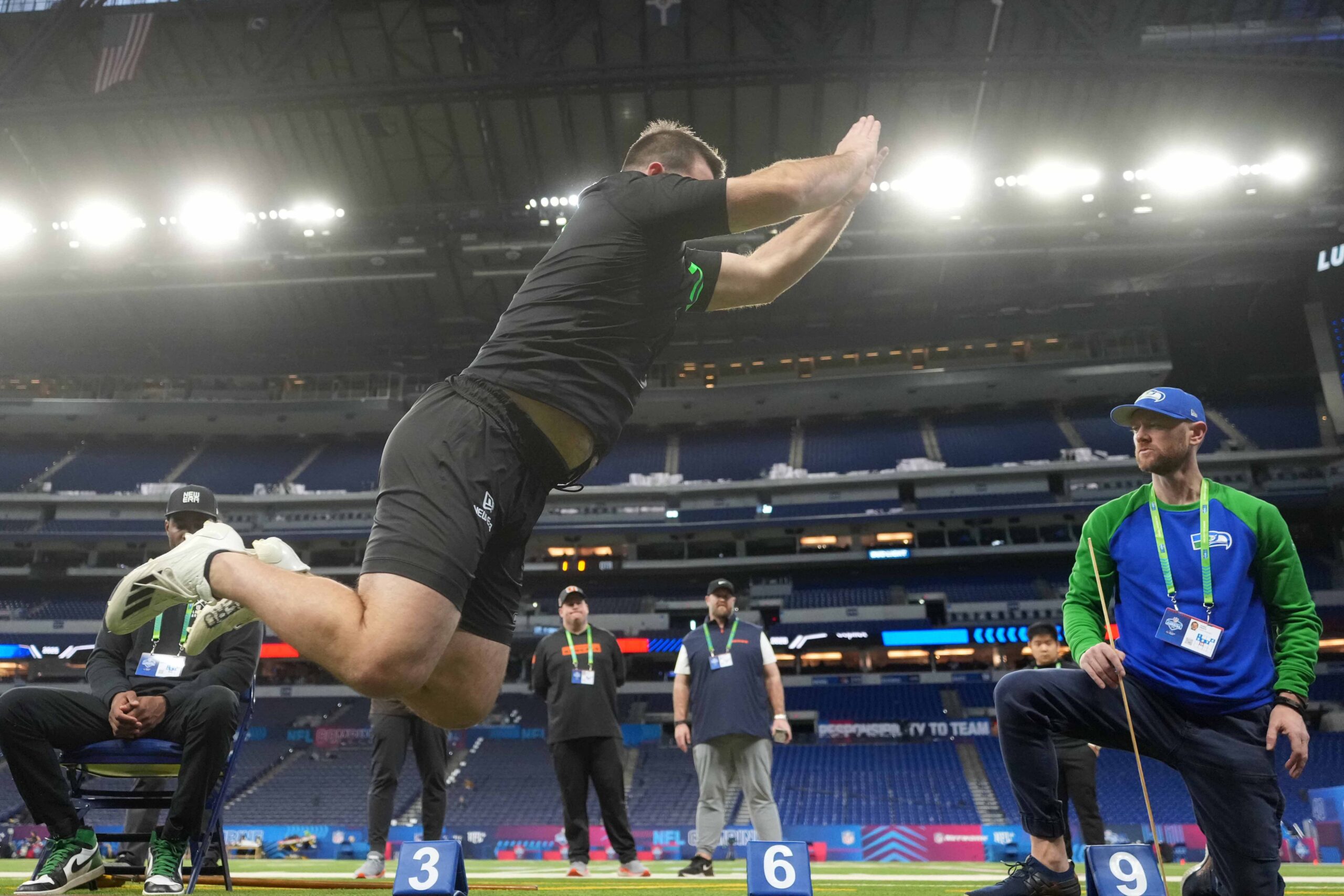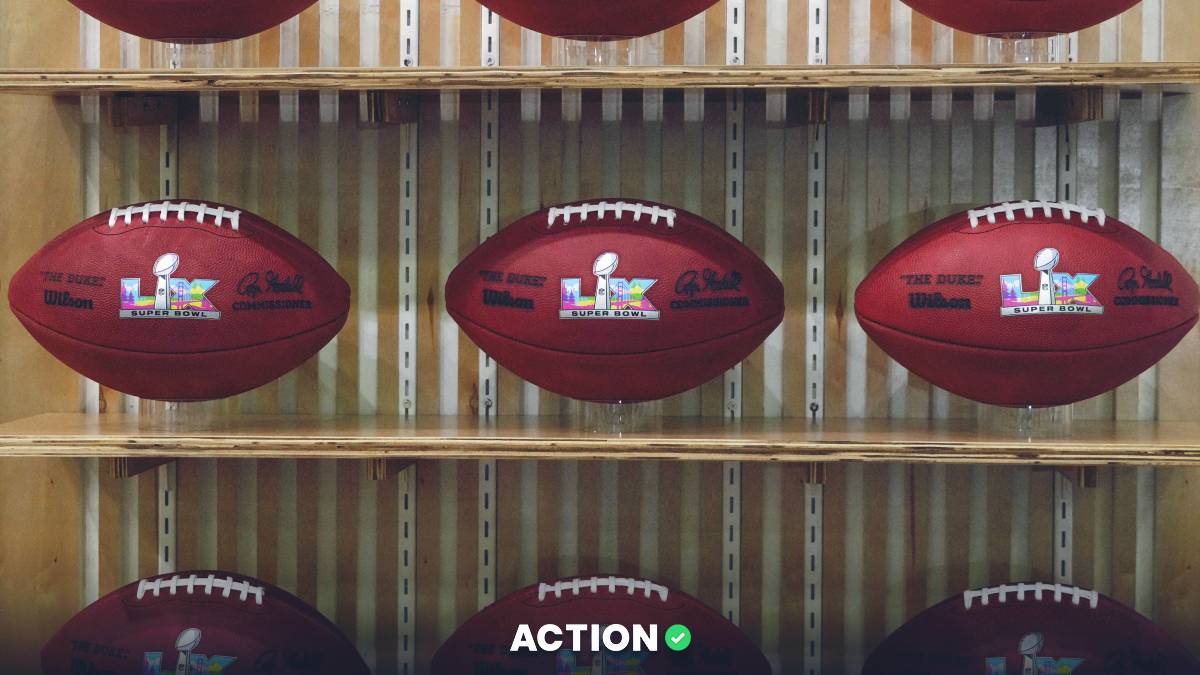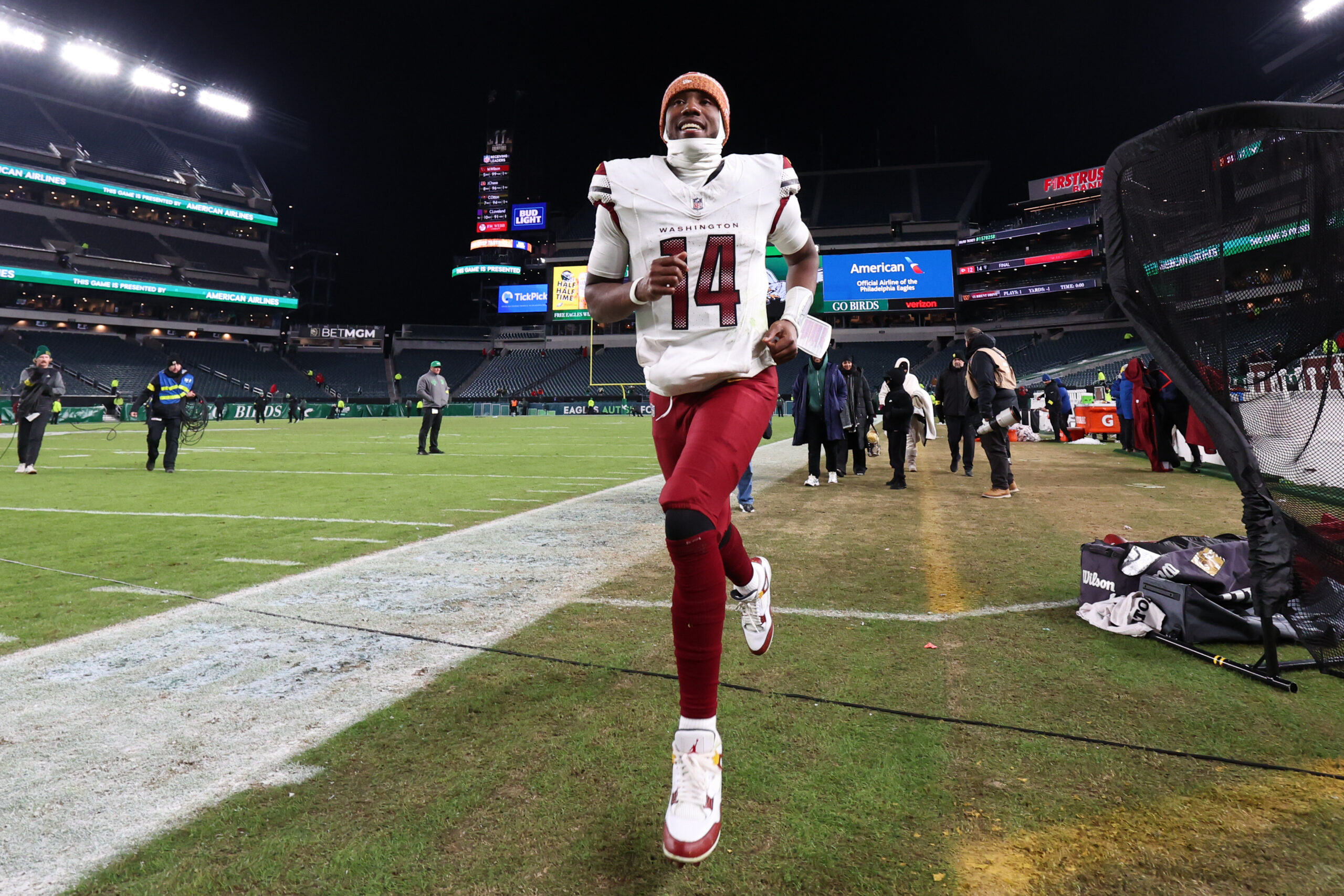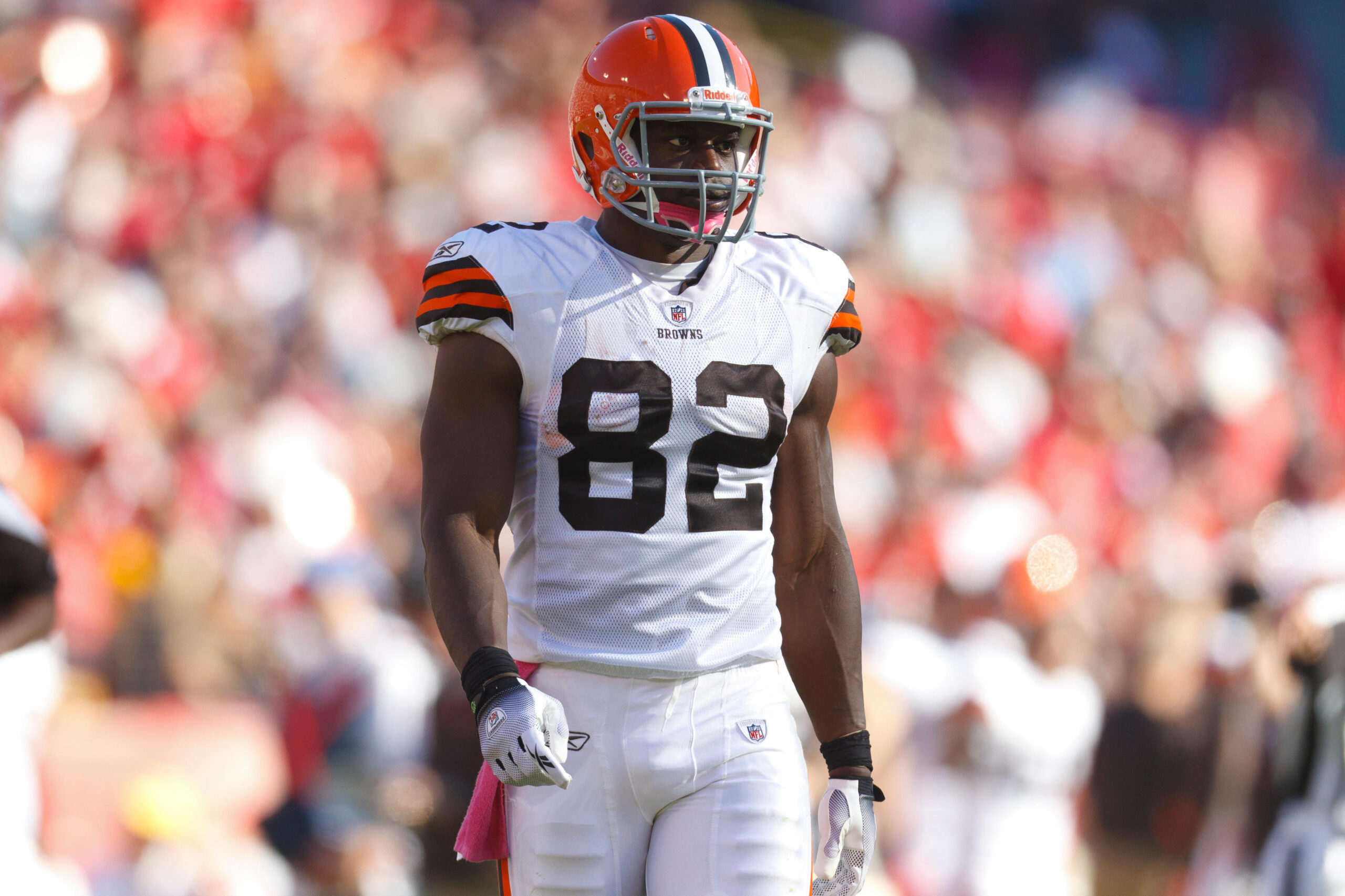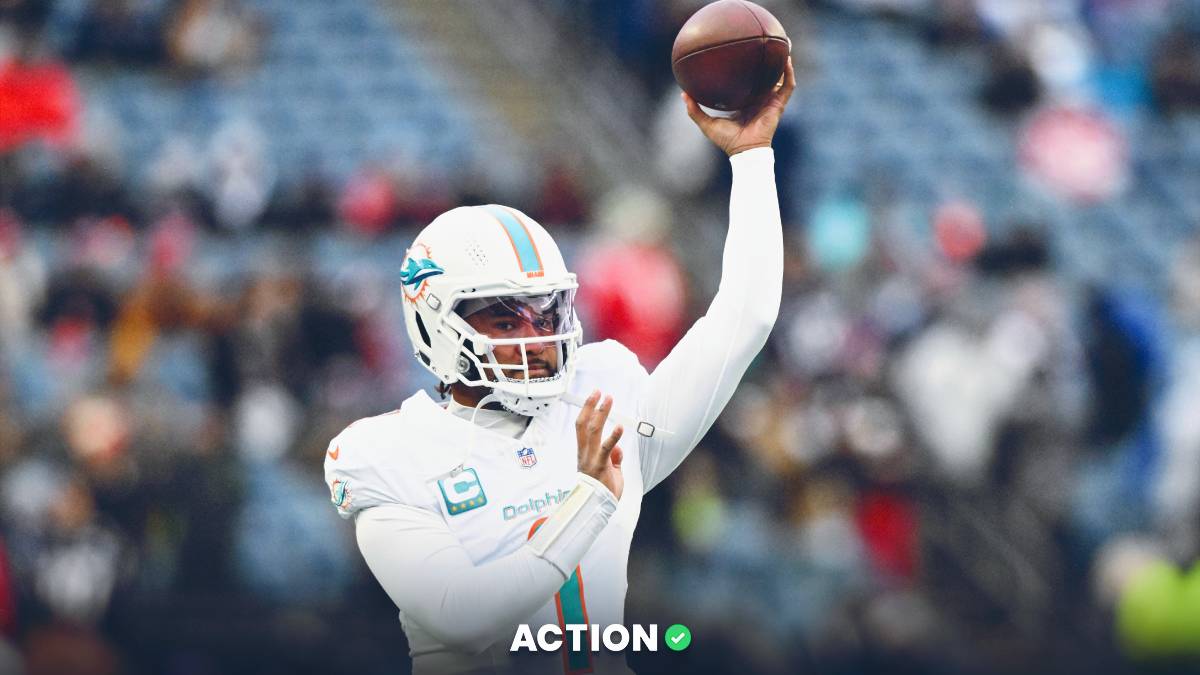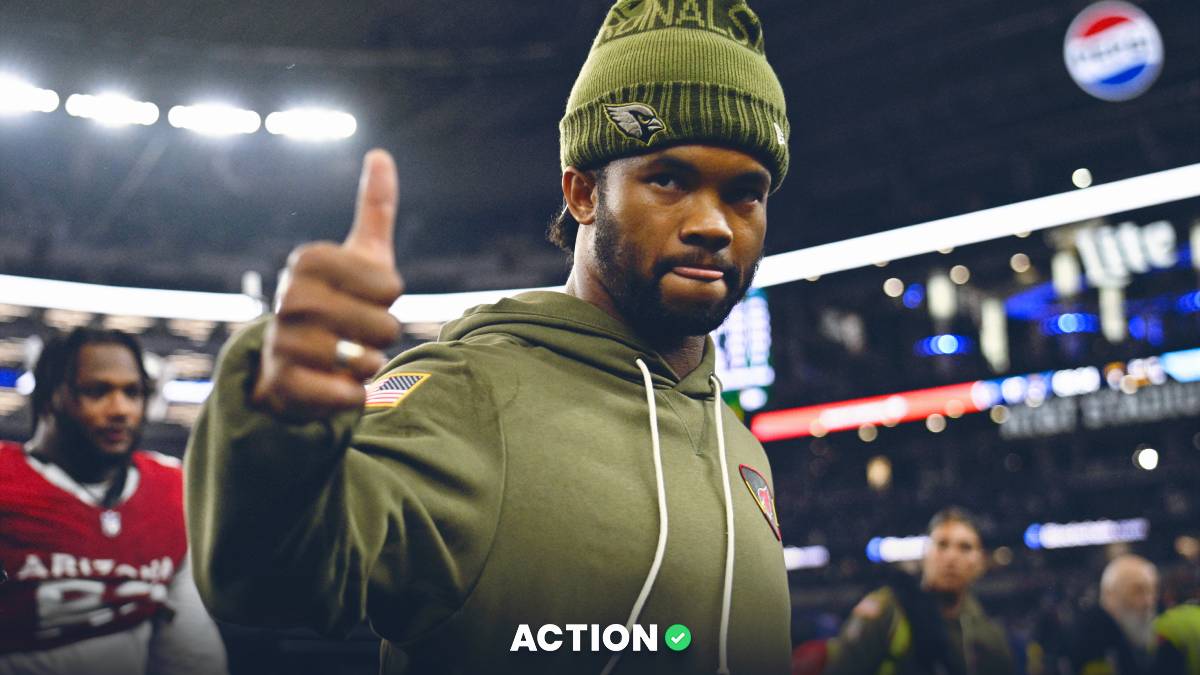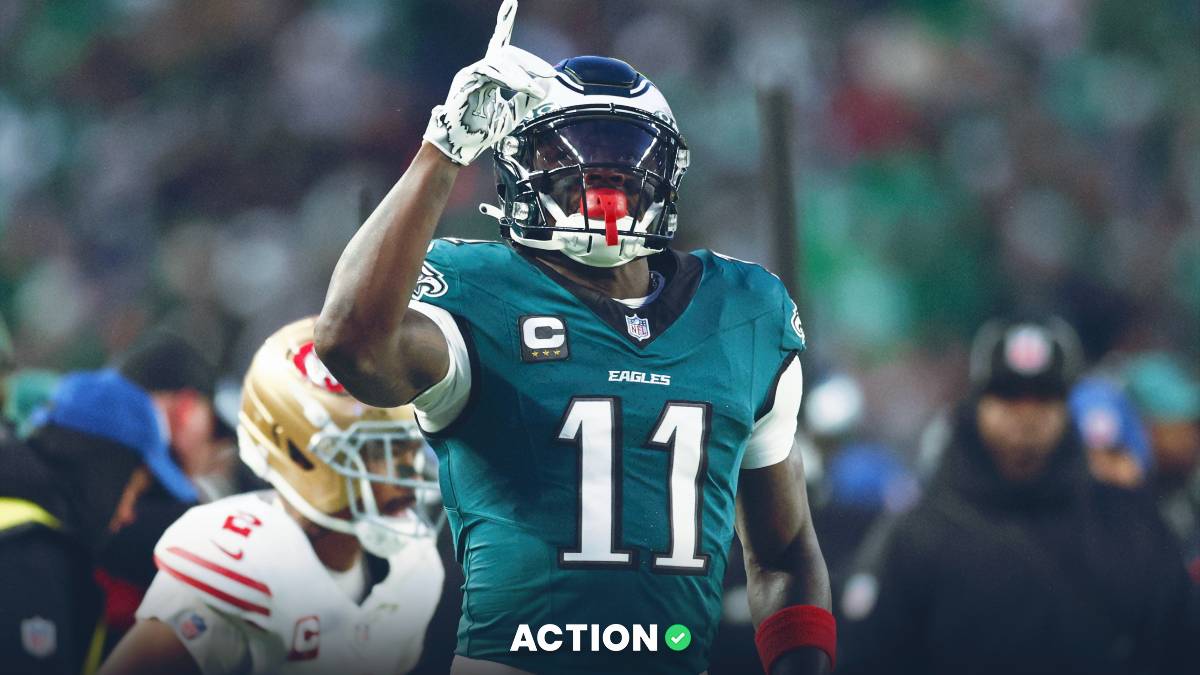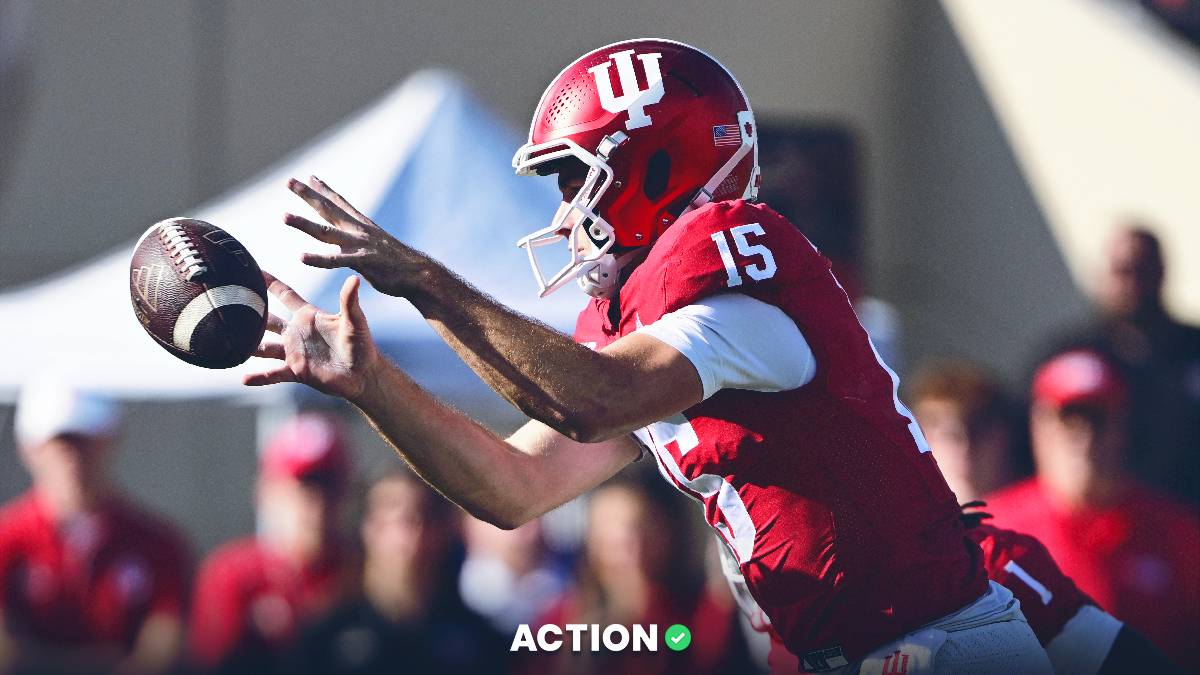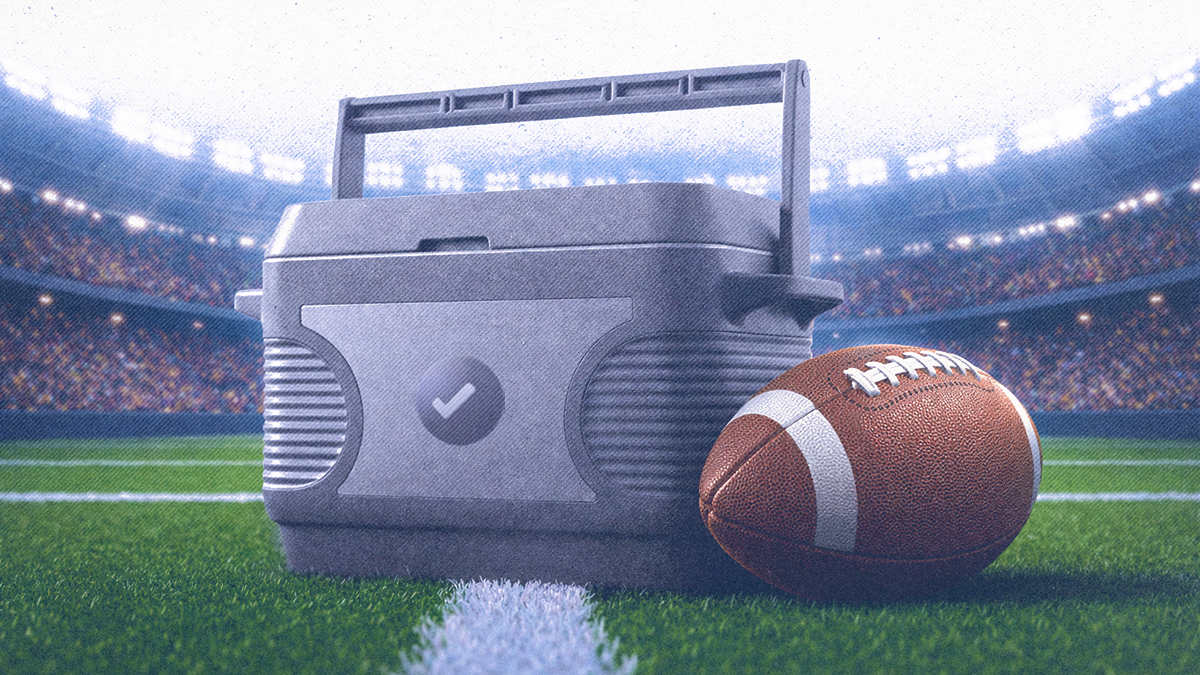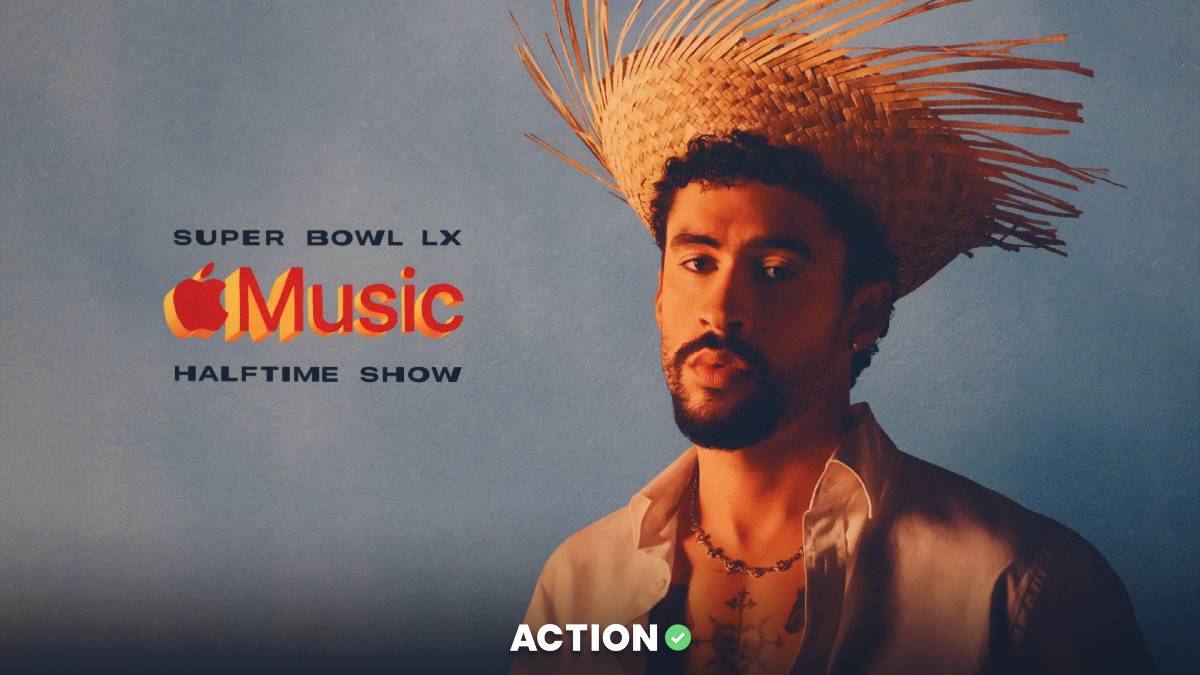The complete gambling history of the Super Bowl! All in one neat file: from Vince Lombardi and the Packers covering the lofty 14-point spread in Super Bowl I to Tom Brady being listed as the favorite in six Super Bowl games. We bring you everything you need to know about the history of the big game through the prism of betting, such as …
- What was the largest point spread upset?
- How old was the youngest QB to cover in a Super Bowl?
- What about the biggest line move?
Let's get started.
Big Picture: Faves vs. Dogs, Overs vs. Unders
Favorites: 33-18 SU and 25-24-2 ATS | Over: 25-24-1 ATS (there was no O/U in Super Bowl 1)
Favorites have accumulated a 33-18 SU (64.7%) record in Super Bowl history, but that number dips down to just 51% when we pay attention to the number that matters … the spread. Totals in Super Bowl history have been almost a complete wash, with the over having a slight edge.
Biggest line move (open to close): 3.5 points
Super Bowl 49 (Patriots-Seahawks)
The point spread opened with the Seahawks laying 2.5-points, but eventually closed with the Patriots favored by 1. New England won 28-24 after Russell Wilson was intercepted at the goal line by Malcolm Butler.

Lowest Total: 33 points
Super Bowl 7, 8, 9 and 35
Imagine the amazing newspaper headlines in 1975 after the third consecutive Super Bowl had a total of exactly 33. In all three games the total stayed under, with the underdog and losing team not scoring more than a single TD. The total of 33 was duplicated again in Super Bowl 35 between the Ravens and Giants, where Baltimore covered the over all by themselves (34-7).
Largest Spread Differential: 36.5 points
Super Bowl 48 (Seahawks-Broncos)
Seattle opened as the favorite and then people remembered Peyton Manning was the QB of the other team. Denver closed at -1.5 and ended up losing the game 43-8. In Super Bowl history, there have been five games with a spread differential of 30 or more and three were against the Broncos.
Largest Spread Upset: 18 points
Super Bowl 3 (Jets-Colts)
Pretty fitting. The first game to actually be called the “Super Bowl” produces the biggest upset in the game’s history. You thought the lead-up to Bortles-Brady was fun? Joe Namath, as a 18-point dog, guaranteed victory three days before kick … then never won another playoff game the rest of his career (cue John Malkovich).

Largest O/U Differential: 29 points
Super Bowl 13 (Steelers-Cowboys)
The over/under was set at 37, which at the time was very appropriate considering only two totals had been set at 40 or higher up to this point. The Steelers won the game 35-31, which went over the total of 37 by 29 points. The 66 total points scored by both teams is still the fourth-most points ever scored in the Super Bowl.
Point Spread Push: 2 games
Super Bowl 31 (Packers-Patriots) and Super Bowl 34 (Rams-Titans)
In Super Bowl 31, the Packers were 14-point favorites against the Patriots. They defeated New England 35-21, becoming the first Super Bowl in history to push the closing point spread. Green Bay backers had a chance late, but Chris Jacke missed a 47-yard field goal with about four minutes left.
Three years later it happened again. The Rams were 7-point favorites against the Titans when Tennessee got to the goal-line before McNair-to-Dyson fell just short. Rams won 23-16, pushing the spread for the second time in Super Bowl history.

Over/Under Push: 1 game
Super Bowl 33 (Broncos-Falcons)
Broncos-Falcons in Super Bowl 33 was the only game in history to push the total. Denver beat Atlanta 34-19, scoring 53 total points without either team scoring a single point in the 3rd quarter. Both teams erupted for 30 points in the 4th quarter, including 17 points from John Elway and Co., burning the souls of under bettors everywhere.
Largest Spread: 18 points
Super Bowl 3 (Jets-Colts) and Super Bowl 29 (49ers-Chargers)
The two quarterbacks on both favorites that induced these high point spreads – Johnny Unitas (Colts) and Steve Young (49ers) – were probably more interesting than the teams themselves. In Super Bowl 3, the Colts ended up on the wrong end of the biggest upset in history. In Super Bowl 29, Steve Young threw for six touchdowns, including four in the first half en route to a trouncing of the Chargers.
Smallest Spread: 1 point
Super Bowl 16 (49ers-Bengals) and Super Bowl 49 (Patriots-Seahawks)
Only twice in Super Bowl history has a point spread closed at just a single point. In Super Bowl 16, the Bengals were 1-point favorites over the 49ers and San Francisco dominated the majority of the game despite the close nature of the final score (26-21). Just four years ago, the Pats closed as 1-point favorites after opening as 2.5-point underdogs (see Malcolm Butler).
Most ATS Wins: 5 wins
Dallas Cowboys (5): Super Bowl 6, 10, 12, 27, 28
Pittsburgh Steelers (5): Super Bowl 9, 13, 14, 30, 40
Both the Cowboys and Steelers had very different journeys on the way to five ATS Super Bowl wins. Pittsburgh covered their five Super Bowls by a total of 19.5 points, while the Cowboys stomped on their opponents, covering the spread by 63.5 points in their five Super Bowl covers (12.7 PPG).
Most ATS Losses: 5
New England Patriots (5): Super Bowl 20, 38, 39, 42, 46
Denver Broncos (5): Super Bowl 12, 21, 22, 24, 48
When the question "Who has the worst ATS Super Bowl history?" is asked, the answer is pretty simple. The Denver Broncos. Denver has been on the wrong side of the three worst ATS losses in Super Bowl history (SB 22, 24, 48), which also happens to be their last three losses in the game. The Broncos have failed to cover the spread by a whopping 125.5 points in their five Super Bowl losses (25.1 PPG), none coming by a TD or less.
How Often the ATS Margin Is Within One Score: 27 games (within 8 points)
In 27 of 51 Super Bowls, the against the spread margin has been eight points or less (52.9%), meaning the team who covered could have theoretically pushed or lost near the end of the game.
How Often the Spread Has Crossed Through a Key Number: 4 games (0, 3, 7, 10, 14 and 17)
Super Bowl 13 (Steelers-Cowboys): Opened Steelers -2.5 and closed Steelers -3.5
Super Bowl 28 (Cowboys-Bills): Opened Cowboys -9 and closed Cowboys -10.5
Super Bowl 48 (Seahawks-Broncos): Opened Seahawks -1 and closed Broncos -1.5
Super Bowl 49 (Patriots-Seahawks): Opened Seahawks -2.5 and closed Patriots -1
Four times in Super Bowl history, the spread crossed over the key numbers of 0, 3, 7, 10, 14 or 17 between the opening and closing point spreads. Three of the four times the line movement has predicted the SU and ATS winner, with the exception being Super Bowl 48, when the Broncos closed as favorites and lost 43-8.
(Note: this does not include line movement, just the opening and closing spreads themselves)
Youngest QB to Cover the Spread: 23 years old
Ben Roethlisberger (Super Bowl 40)
In his second year in the league, 23-year-old Ben Roethlisberger led the Steelers to a Super Bowl victory and a cover, despite a lackluster performance with no touchdowns and two interceptions. Roethlisberger went on to win the Super Bowl again at the age of 26, despite not covering the spread against the Cardinals in that game.
Oldest QB to Cover the Spread: 39 years old
Peyton Manning (Super Bowl 50)
The oldest QB to cover a Super Bowl was Peyton Manning two years ago in Super Bowl 50 against the Panthers. Three quarterbacks have started a Super Bowl at the age of 38 or older and they are 3-0 SU and ATS. Tom Brady in Super Bowl 51, Manning in Super Bowl 50 and John Elway in Super Bowl 33.
Teams to Win Super Bowl, But Not Cover: 6 games
Steelers (Super Bowl 10, 43)
49ers (Super Bowl 23)
Cowboys (Super Bowl 30)
Patriots (Super Bowl 38, 39)
Six times in Super Bowl history has a team won the game SU, but failed to cover the point spread. It first occurred in Super Bowl 10, when Terry Bradshaw and the Steelers beat the Cowboys 21-17, but failed to cover the 6.5-point spread. Bradshaw hit Lynn Swann for a TD with about 3.5 minutes left in the game to put Pittsburgh up 21-10. But in just over a minute, Dallas drove down the field in five plays and four pass completions to cut the lead to 21-17, the final score.
(Note: In Super Bowls 31 and 34, the teams that won pushed the spread)
Most Games Covered By a QB: 3 games
Joe Montana (Super Bowl 16, 19, 24)
Roger Staubach (Super Bowl 6, 10, 12)
Terry Bradshaw (Super Bowl 9, 13, 14)
Tom Brady (Super Bowl 36, 49, 51)
In Tom Brady's miraculous 25-point comeback in the Super Bowl last year against the Falcons, he tied Terry Bradshaw, Roger Staubach and Joe Montana for the most games covered by a starting QB in Super Bowl history. Brady has the opportunity in Super Bowl 52 to become the winningest ATS QB in Super Bowl history.
Super Bowl MVP’s To Not Cover the Spread: 9 MVP’s
Santonio Holmes (Super Bowl 43)
Deion Branch (Super Bowl 39)
Tom Brady (Super Bowl 38)
Larry Brown (Super Bowl 30)
Jerry Rice (Super Bowl 23)
Lynn Swann (Super Bowl 10)
Chuck Howley (Super Bowl 5)
The Super Bowl MVP has not been on the team that covered the spread seven times in the history of the game. The last one to be a part of this unfortunate group was Santonio Holmes in Super Bowl 43, where the Steelers wideout made this catch against Arizona:

(Note: In Super Bowls 31 and 34, Desmond Howard and Kurt Warner’s teams pushed the spread.)
Lowest Seed To Cover the Spread: 6 seed (twice)
Super Bowl 45 (Packers) and Super Bowl 40 (Steelers)
Seeding as we know it today began in the Super Bowl era in 1975 with Super Bowl 10 between the Steelers and Cowboys. Since then two 6-seeds have covered in the big game. The Steelers were the first to do it in Super Bowl 40, beating the 1-seed Seahawks and Matt Hasselbeck. Five years later Aaron Rodgers and the Packers repeated the feat beating that same Steelers team.
(Note: NFL began playoff seeding in Super Bowl 10)
Most Consecutive Super Bowl Games Covered (Team and QB): 2 games
Broncos, John Elway (Super Bowls 32 and 33)
Cowboys, Troy Aikman (Super Bowls 27 and 28)
Steelers, Terry Bradshaw (Super Bowls 13 and 14)
Dolphins, Bob Griese (Super Bowls 7 and 8)
Packers, Bart Starr (Super Bowls 1 and 2)
Tom Brady may have five Super Bowl wins, but one thing he's never done is cover consecutive Super Bowls. If the Patriots win Super Bowl 52 and cover the spread against the Eagles, Brady and New England will join only five other QB/franchise combinations to pull off the feat.
(All spreads are the closing numbers unless specifically listed)



